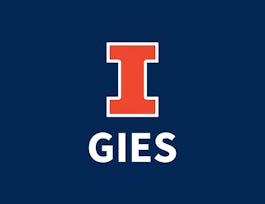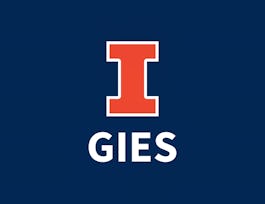Global business ethics is the study and analysis of how ethics and global business are connected. Because commerce is about markets, and markets entail exchanges between people and groups of people, commerce is about human relationships..



Global Impact: Business Ethics

Instructor: Patricia Werhane
Sponsored by Pontificia Universidad Católica del Perú
20,820 already enrolled
(458 reviews)
What you'll learn
Identify ethical issues in global business.
Address issues from more than one point of view.
Evaluate good and weak arguments.
Be more morally sensitive to ethical dilemmas in global commerce.
Skills you'll gain
Details to know

Add to your LinkedIn profile
5 assignments
See how employees at top companies are mastering in-demand skills

Build your subject-matter expertise
- Learn new concepts from industry experts
- Gain a foundational understanding of a subject or tool
- Develop job-relevant skills with hands-on projects
- Earn a shareable career certificate


Earn a career certificate
Add this credential to your LinkedIn profile, resume, or CV
Share it on social media and in your performance review

There are 4 modules in this course
You will become familiar with the course, your classmates, and our learning environment. The orientation will also help you obtain the technical skills required for the course. Identify what we mean by ethics and moral reasoning. Learn about the “do the right thing” approach, utilitarianism, and theories of justice. Understand why these theories are important for moral reasoning and for commerce. Be familiar with the framework for moral reasoning. Apply this framework in a case analysis.
What's included
6 videos8 readings2 assignments1 peer review1 discussion prompt
Distinguish stakeholder theory from managerial shareholder theory. Be able to use stakeholder theory in the framework for moral reasoning. Apply the model to one case, e.g., Merck, BHP or the Oil Rig.
What's included
5 videos2 readings1 assignment
Be able to distinguish egoism, role relativism, cultural relativism, ethical relativism and some forms of universalism. Apply these distinctions to the “Greed is Good” speech on the attached video. Apply these distinctions using the framework introduced in Module 1.
What's included
6 videos2 readings1 assignment
Understand the challenges of globalization in emerging markets. Change dependent mindsets about “the poor.” Distinguish the difference between “responsibility to” and “partnerships with.” Grasp how poverty can be alleviated even by students.
What's included
5 videos4 readings1 assignment1 peer review
Instructor

Offered by
Why people choose Coursera for their career




Learner reviews
458 reviews
- 5 stars
78.38%
- 4 stars
18.12%
- 3 stars
2.18%
- 2 stars
0.21%
- 1 star
1.09%
Showing 3 of 458
Reviewed on Jun 21, 2020
This course creates a great impact on individuals and adds values to our ethical decisions.
Reviewed on Jun 20, 2020
handling business issue toward the success ans norms and behaveour
Reviewed on May 8, 2020
I love the ethics part of the course. Ethical decision framework is very useful and practical. Professor Werhane is very witty. She teaches the course with authenticity, humility and a sense of humor.
Recommended if you're interested in Business

University of Illinois Urbana-Champaign

University of Illinois Urbana-Champaign

Coursera Instructor Network

University of Illinois Urbana-Champaign

Open new doors with Coursera Plus
Unlimited access to 10,000+ world-class courses, hands-on projects, and job-ready certificate programs - all included in your subscription
Advance your career with an online degree
Earn a degree from world-class universities - 100% online
Join over 3,400 global companies that choose Coursera for Business
Upskill your employees to excel in the digital economy


